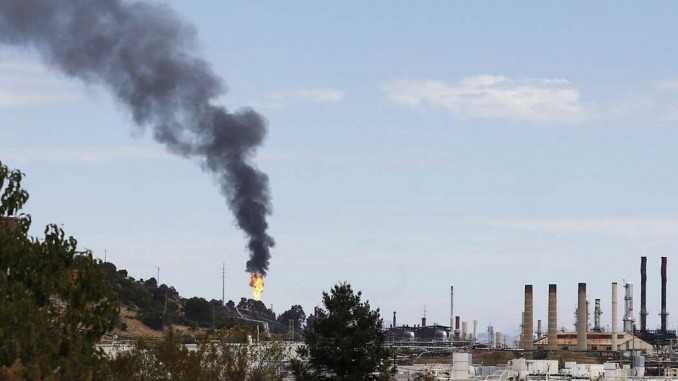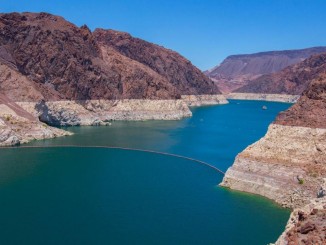
500 workers at Chevron’s Richmond refinery have been on strike since Monday, March 21. And Chevron management hasn’t moved any closer to the workers’ demands: an extra 5% wage increase to adjust for the rising cost of living in the Bay Area (on top of the nationally agreed 12% over 4 years), increased company contribution to healthcare (to cover the 23% increase in healthcare costs in the last year), and safety concerns due to Chevron’s threat to remove union safety monitors.
By running the plant with managers, supervisors, workers still on probation, and a handful of replacement workers, Chevron is able to provide an output, estimated at about 20% of the normal 250,000 barrels of fuel per day. With the skilled workforce on strike, however, the plant has had many cases of flaring, which is a burn-off of unrefined fuel to prevent explosions in the plant. The increased incidence of flaring demonstrates the unsafe conditions that the company is willing to operate under, not to mention that flaring is harmful to the environment as it releases greenhouse gases and neurotoxins that endanger Richmond residents.
Since the strike has been unable to completely stop production, there has been little reason for Chevron to change its attitude towards the workers who produce their profits, as well as towards our entire society, which is paying the ultimate price due to the corporate greed of Big Oil. Chevron workers need to be fairly compensated for their work and have basic workplace safety. But we all need a planet and a future – and that means stopping the current climate catastrophe. Chevron is among the top 100 companies reponsible for global heating. But the fight for our future will have to go way beyond Chevron Richmond. It will require reaching out to workers at other refineries and to fight together for better working conditions and ultimately sustainable jobs. And that will require collaboration with workers in other industries. After all, workers around the world face the same problems, as we are working for a handful of billionaires who would rather cause mass extinction than give up their profits.




